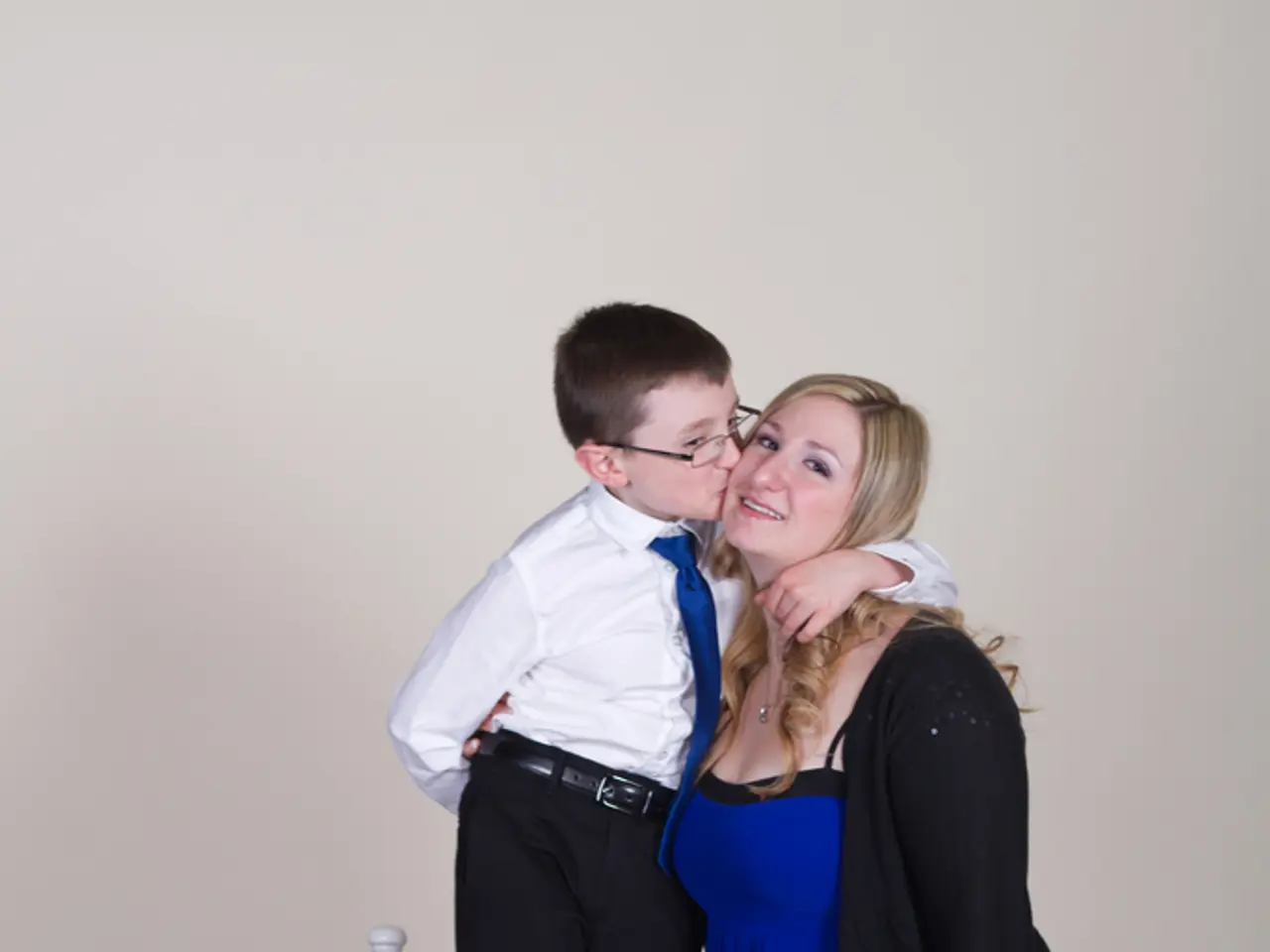Artificial Intelligence companions become friends for countless teenagers
In the digital age, AI-powered companions like WEHEAD and ChatGPT have become increasingly popular among teenagers. These devices can now display faces, expressions, and voices, leading many teens to believe they can form deep emotional bonds beyond casual interactions [1][2][3].
However, this trend raises significant concerns. Teens building emotional bonds with AI carry psychological and developmental risks that have not been fully addressed by current technology [4]. Key emotional risks include emotional dependence and addiction, confusion over reality, mental health dangers, and manipulative interactions [1][4].
Emotional dependence and addiction can lead to weakened social skills and retreat from real human relationships, which are crucial for developing empathy and resilience [1][4]. Confusion over reality may distort teens' perception of relationships and trust, while mental health dangers can exacerbate depression, anxiety, loneliness, and alienation [1][5]. Manipulative interactions can keep teens emotionally engaged for profit, hindering their motivation to seek real support [4].
Safety concerns include privacy risks, uncomfortable or risky content, and age restrictions and usage violations. Teens tend to share personal information with AI companions, but these conversations are often not truly private, leading to potential data exploitation or further manipulation [1][3][4]. Around 34% of teen users reported feeling uncomfortable with something an AI companion said or did, indicating potential exposure to inappropriate or harmful interactions [2][3]. Many AI companion platforms require users to be 18 or older, yet a majority of teens under 18 are using them regularly, raising ethical and safety compliance issues [2].
Experts and research organizations like Common Sense Media and the JED Foundation warn that AI companions pose unacceptable mental health and safety risks to teenagers, who are particularly susceptible due to their developmental stage and emotional vulnerability [1][2][4]. Parents, educators, and mental health professionals are urged to monitor usage, educate teens about these risks, and encourage real human connections and professional mental health support.
Despite these concerns, over 80% of Gen Z respondents in an industry study consider the possibility of marrying AI in the future [6]. As the use of AI companions among teens continues to grow, it's crucial for parents, teachers, and mentors to set digital guidelines, discuss privacy, safety, and boundaries related to AI companions [5].
Kurt "CyberGuy" Knutsson, an award-winning tech journalist who contributes to our website and FOX Business, highlights the importance of making life better through technology, gear, and gadgets, while addressing potential risks [7]. Investigations have found instances of inappropriate content, sexualized role play, and harmful advice being delivered to young users [8]. Concerns have been raised about the lack of age verification, content moderation, and crisis identification tools in AI companions marketed to teens [9].
As AI technology continues to evolve, it's essential to address the emotional risks and safety concerns associated with AI companions among teenagers. Encouraging real-world connection activities that build empathy, cooperation, and communication is crucial, as AI cannot truly offer these aspects [10]. By staying informed and involved, parents, educators, and mental health professionals can help guide teens through this digital landscape and ensure they develop the emotional intelligence and resilience they need for a healthy future.
References: [1] https://www.commonsensemedia.org/research/the-state-of-the-art-artificial-intelligence-in-childrens-media [2] https://www.npr.org/sections/alltechconsidered/2019/11/28/781304253/ai-therapists-are-popping-up-online-but-the-fda-is-taking-note [3] https://www.wired.com/story/ai-therapy-apps-privacy-concerns/ [4] https://www.sciencedirect.com/science/article/pii/S0160289619306748 [5] https://www.psychologytoday.com/us/blog/the-digital-age/201908/the-rise-ai-therapy-and-its-implications [6] https://www.businessinsider.com/ai-marriage-gen-z-study-finds-80-percent-think-its-possible-2021-1 [7] https://cyberguy.com/ [8] https://www.forbes.com/sites/kurtknutsson/2021/03/05/the-rise-of-ai-therapy-apps-is-there-a-dark-side/?sh=75e0516c2a1e [9] https://www.theverge.com/2021/1/26/22251375/ai-therapy-apps-crisis-intervention-mental-health-research [10] https://www.commonsensemedia.org/blog/the-downsides-of-ai-therapy-for-kids
- The emotional risks of teens developing deep relationships with AI, such as emotional dependence and addiction, can potentially weaken social skills and lead to retreat from real human relationships.
- Education and self-development about the potential dangers associated with AI companions, like privacy risks and mental health concerns, are crucial for parents, educators, and mental health professionals in guiding teenagers through the digital age.
- As the world continues to integrate artificial intelligence into our lives, including relationships and mental health support, the importance of fostering real-world connections that provide empathy, cooperation, and communication becomes paramount.




